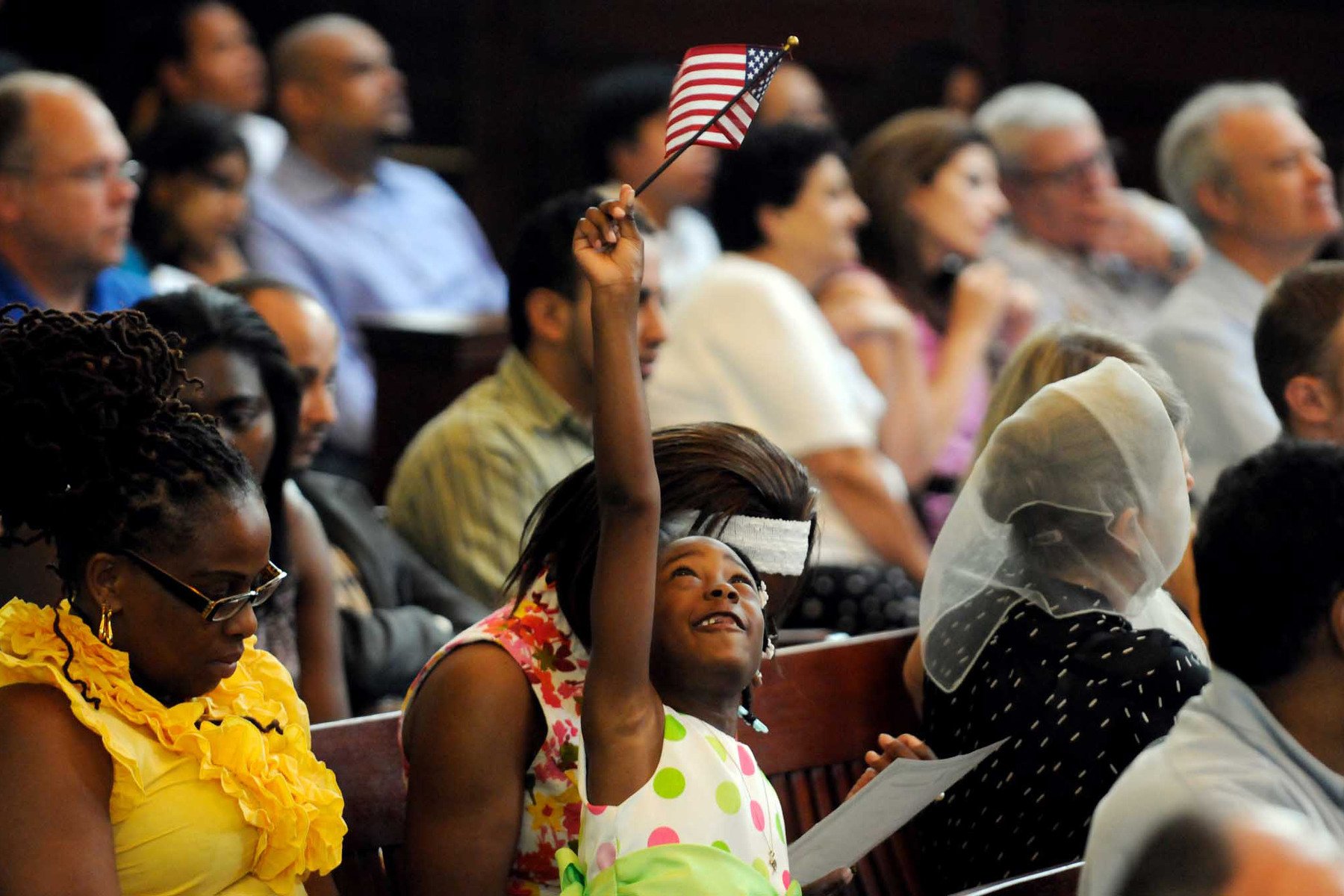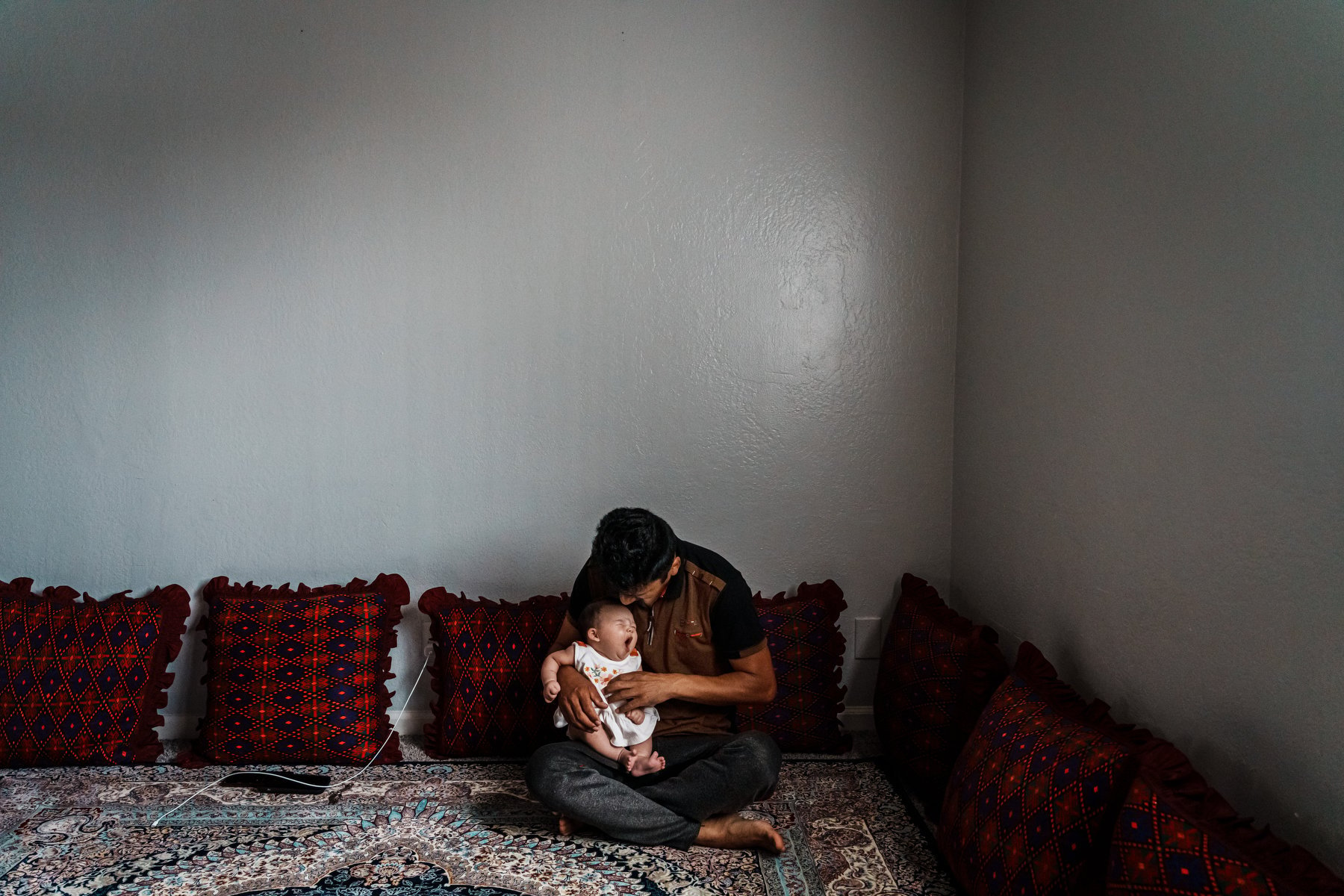A federal judge on Thursday temporarily blocked President Donald Trump’s executive order restricting birthright citizenship to babies born on U.S. soil. The order is one of several efforts by the administration to block migrants’ entry into and residence in the country.
The executive orders and directives include canceling flights to the United States for refugees already approved to legally enter the country. They also do away with protections for “sensitive zones,” which previously prevented immigration officials from arresting undocumented immigrants in places like schools, churches and women’s shelters.
As legal battles over Trump’s executive orders play out, here’s what to know about the history of birthright citizenship.
What is birthright citizenship?
Birthright citizenship was first established in 1868 by the 14th Amendment of the United States Constitution: “All persons born or naturalized in the United States, and subject to the jurisdiction thereof, are citizens of the United States and of the State wherein they reside.”
The policy was the result of African Americans pushing for decades to be recognized as full citizens and part of a trio of amendments — the 13th, 14th and 15th — that ended U.S. slavery and established citizenship and voting rights for some people of color.
In the decade before the amendment, the U.S. Supreme Court had issued a landmark ruling in Dred Scott v. Sandford stating that people of African descent, whether they were free descendants of slaves or enslaved themselves, could not be U.S. citizens.
“What’s important to remember about Dred Scott is that its impact on the ground in the daily lives of African Americans is very limited,” historian Martha S. Jones said in a 2018 interview with Democracy Now. “Very few courts are willing to enforce the literal terms of Dred Scott in the cases that they hear, state legislatures are not prepared to defer to the court’s reasoning, and African Americans — even in the face of the devastating rhetoric in Dred Scott — continue to wage a campaign for citizenship into what then becomes the era of the Civil War.”
Those efforts ultimately led to the right to citizenship being enshrined in the Constitution for all people born in the United States except children born to foreign diplomats. Initially, the law also did not include children born to foreign military members or Native American children, but these have since been changed.
The Supreme Court upheld birthright citizenship in the 1898 case United States v. Wong Kim Ark. Justices affirmed the right to U.S. citizenship for a man who was born in California to parents who were Chinese citizens. This decision confirmed that children born in the country to immigrant parents have U.S. citizenship.
“There are moments when the Constitution is vague. This is not one of them,” Harold Solis, co-legal director of Make the Road New York, said in a Tuesday Zoom call hosted by the American Civil Liberties Union (ACLU). “If a president can unilaterally restrict birthright citizenship today, what constitutional rights and who else’s citizenship might be reinterpreted away tomorrow?”
What does Trump’s order say and how will it affect people?
Trump’s executive order states that the 14th Amendment excludes birthright citizenship from “persons who were born in the United States but not ‘subject to the jurisdiction thereof.’” The administration interprets that statement to bar citizenship from children born in the United States to a mother who is living in the country without authorization and a father who is not a citizen or permanent resident, as well as children born in the country to a migrant mother who has temporary legal status — including a visa — and a father who is not a U.S. citizen or permanent resident.
The order does not address transgender parents or parents from other queer identities. It also defines “mother” as a “female biological progenitor,” and “father” as a “male biological progenitor.” Leaders of executive departments and agencies have until February 19 to issue public guidance on how the policy will be implemented. If the order survives lawsuits, it would apply to anyone born after February 19.
While Trump expressed interest in scaling back birthright citizenship during his first term, advocates and legal experts on the ACLU call reiterated that no other president has attempted such a huge change to U.S. birthright citizenship.
“Nobody really knows how any of this is supposed to work, which is part of why this is so chaotic and so cruel, and why there’s so much fear and uncertainty for families around the country right now,” said Cody Wofsy, deputy director of the ACLU’s Immigrants’ Rights Project.
Data from the Annie E. Casey Foundation shows that an estimated 910,462 births occurred in 2018 to “foreign-born mothers,” which includes those who entered the country both with and without authorization. A Pew report analyzing data from the same year found that 250,000 babies were born to immigrant parents who entered the country without authorization.
Typically all babies born in the United States would be eligible as citizens to receive access to health insurance coverage through Medicaid or the Children’s Health Insurance Program meant to provide free or low-cost health coverage to low-income people.
Children born into “mixed-status” households, or those with undocumented or non-citizen family members, already face barriers to government services even without the threat of their birthright citizenship being taken away. In many cases, undocumented parents do not pursue coverage out of fear of government surveillance and detention. One recent study found that participation in the Supplemental Nutrition Assistance Program among children from “mixed-status” families declined significantly during Trump’s first term.
The ACLU told reporters Tuesday that children born after Trump’s executive order goes into effect would lose eligibility for these types of government services. The question is whether the order will pass the constitutionality test in court.

Does the order have legal standing?
Trump’s executive order on birthright citizenship has been blocked temporarily nationwide.In court on Thursday, senior U.S. District Judge John Coughenour, an appointee of former President Ronald Reagan, said, “I’ve been on the bench for over four decades, I can’t remember another case where the question presented is as clear as this one is. This is a blatantly unconstitutional order,” according to reporting by The Seattle Times.
In the days after Trump signed the order on Monday, five pregnant women joined a lawsuit filed in federal district court in Maryland challenging its constitutionality. The ACLU and immigrant rights advocacy groups launched their own lawsuit, and attorneys general in more than 20 states have sued separately to block the order from going into effect.
The complaint by the attorneys general argues that the Constitution does not empower the president or Congress to “override or conflict” the clear language granting “automatic citizenship to individuals born in the United States.”
All of the cases note the harm that this would cause for the thousands of children born in the country to non-citizen parents. For example, one pregnant woman from Venezuela suing the administration described the fear that her child will be “stateless.”
Former Oregon Attorney General Ellen Rosenblum, who served in the position for 12 years and sued the first Trump administration multiple times, noted during an interview with The 19th that the attorneys general sued in two states, Massachusetts and Washington state.
“That’s not surprising,” Rosenblum said. “It doesn’t mean they’re disagreeing. It just means that there’s different opportunities in different states and federal courts, and sometimes it makes sense to have multiple actions sort of paralleling each other.”
Executive orders have to be grounded in existing law and constitutional authority to be upheld, so it will be in the hands of federal judges to determine whether the administration’s interpretation of the 14th Amendment is valid. For now, the Seattle-based district judge has put a 14-day pause on the order. Rosenblum noted the level of preparation that went into this moment.
“We started preparing as the Democratic AGs almost two years ago for the potential eventuality,” Rosenblum said. “I believe that there’s no group better prepared to push back where appropriate.”







